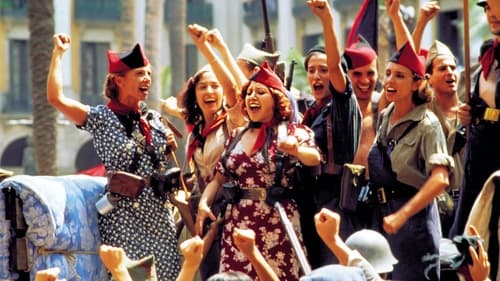
Cura
At the outbreak of the Spanish Civil War, the nun Maria is forced to flee her convent. She takes refuge in a brothel, until it is liberated by a woman's anarchist group. Maria joins the group and eventually goes to the front. The women's group faces the problems of fighting not only the nationalists, but also factions on the left seeking to impose a more traditional military structure.
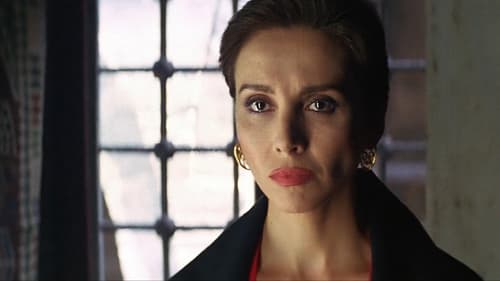
Padre Alonso
A young woman’s passion forms the basis of this erotic Spanish drama adapted from a popular novel by Antonio Gala. The night before Desideria’s marriage, her girl friends give her some valuable advice on sex. The marriage takes place, and while it is generally happy, her husband Ramiro suffers from sexual dysfunction and Desideria is frustrated. The two end up on holiday in Istanbul with two friends. Desideria falls madly in love with the sensual ambiance of the ancient, teeming city. She begins a passionate affair with a handsome Turkish guide, Yaman. Upon her return home, she learns that she is pregnant. Ramiro agrees to support the child, but unfortunately it dies in infancy and the grieving Desideria flees for Istanbul to find her lover. She finds him and they renew their torrid affair. Later she learns some distressing things about Yaman, but this does not stop her from becoming his sexual slave and a call girl for wealthy carpet sellers.

Gran Gilbert (as Pepe Cerro)
Joan Mares obsession for the lovely and luscious Norma Valenti takes epic proportions because he cannot let go of her. After he is injured by some skin heads, he uses his scars to pursue his life as a street musician. He devices a plan to get to Norma and she never catches on to his deceit, except she realizes that as Juan Faneca his performance in bed is exactly what she had experienced with Joan Mares because she concludes they were taught sex by the same prostitute.

A divorcing couple remembers the best years of their lives.
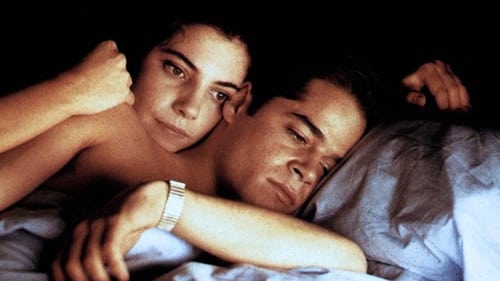
Minuta
Set in '50s Spain, a young man leaves the army and looks for a job so he and his fiancée can get married. He rents a room from a widow, and shortly begins a torrid affair with her. The fiancée figures it out and decides to win him back by offering herself to him and taking him to meet her family. Ultimately he has to make a decision. Based on a true story.

In 1940's Madrid. Juan plays piano for Pepita and her on-stage partner Mario. Although Mario really wants to steal Juan for himself, Juan is not interested and Mario resorts to a string of lovers as consolation. When he loves (and leaves) a young nobleman, the young man wants revenge.
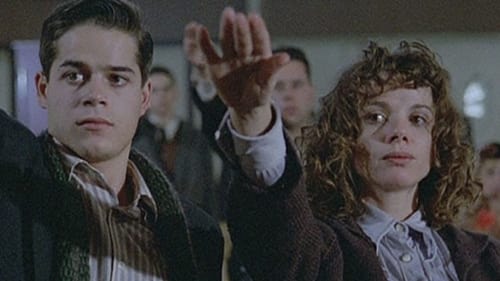
Justiniano
In the post Spanish civil war years, Catalan kids would sit in circles among the ruins and tell stories, known as "aventis" (the film's original title in Catalan, its original language). These tales mix war stories, local gossip, comic book characters, fantasy and real events. The "aventis" told in this film are told in flashback. In the mid 80s, 45 or so years after the age of the "aventis," a doctor and a nurse-nun (who grew up together, and now are co-workers in a hospital) identify the corpse of one of the main characters of the "aventis" of their childhood and adolescence. Besides the interesting flashbacks - a chronical of the Civil War in a "typical" Barcelona microcosm itself, the discovery of this body (belonging to someone long presumed dead) leads to other surprises and unresolved doubts, several decades later

Padre de Chus
A young man, son and grandson of soldiers, refuses to perform military service, causing a commotion in the whole family. Finally, social, environmental and family pressures, will force the young to make a decision that will have unforeseeable consequences.

This is the story of a man fighting with all his might for his life and his freedom. Eleuterio (”El Lute”) embarks upon an action-packed future, fuelled by the notions of freedom and dreams of living just as his countrymen, ever-growing in his mind. Nothing and no-one can stop him. After escaping the Puerto de Santa María prison, the reunion with his family is just the beginning of what will become an endless escape.

Comandante Losantos
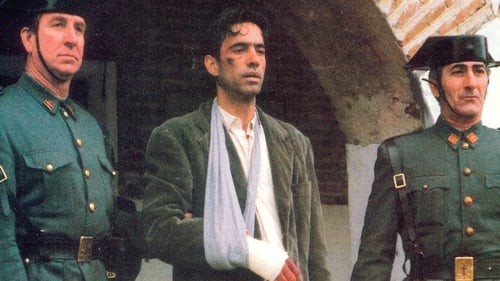
El padre de Chelo
In Spain of the 1960s, a poor family of quinquis - a nomadic ethnic group with a tradition as old as that of the gypsises of Spain but with even more obscure origins - have a nomadic life marked by poverty. The son, Eleuterio Sánchez Rodriguez, nicknamed "El Lute", steals some chickens and is condemned to six months in jail. El Lute moves to the slum outskirts of Madrid with his common law wife, Chelo, starting an itinerant life as a peddler of pots and pans and living in a quinqui shantytown. He gradually embarks upon as life of petty criminality, eventually participating in the theft of a jewelry store during which a bystander is killed.

Rodrigo García Jalón
Madrid, Spring 1913. During a visit to the casino, a beautiful 20 year-old woman catches the eye of a 50 year-old rich widower. But the gamble he is about to commit is far greater than he suspects.

Esparza Julvé
The plot follows a private detective, an ex communist and former CIA agent, who travels from Barcelona to Madrid to discover the identity of the assassin of the leader of the Spanish Communist party who was stabbed during a blackout while presiding over a meeting of the party's central committee. The film is a thriller with ironic political overtones.
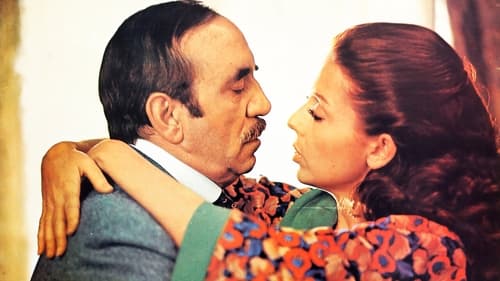
Cecilio Rubes, a businessman engaged in the manufacture of baths and toilets, tries to remain neutral in the imminent Spanish civil war. But the attitude of Cécil, his only child, a spoiled boy who grows without respect their parents, will forced him to face the cruel reality of the facts. Jumping back and forth in time, we are shown his present and his past through his wife Adela and Paulina, the mistress of father and son.

Madrid, Spain, early thirties. The charming playboy Sergio Hernán is an unscrupulous womanizer who over the years has seduced and abandoned hundreds of women with the complicity of Oshidori, his cynical butler. However, his brief encounter with Elena Fortún, blonde, posh and a bit cheesy, unexpectedly leaves an indelible mark on his soul.

The film explains the vicissitudes of a group of revue stars who arrive into a small provincial village in the dark Spain of the sixties, called Puente San Gil. There the women are received with aggressiveness and contempt by the ultraconservative bourgeoisie, to the point of becoming denounced and imprisoned because of the scandal caused by the sensual content of their variety show. But they refuse to remain silent and sing their protest as a song. —jsanchez













